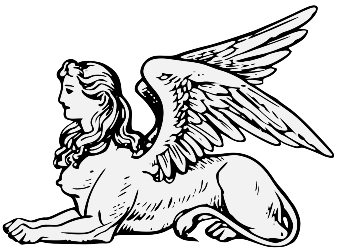
Circe's Potion
Alchemy (from Arabic: al-kīmiyā; from Ancient Greek: khumeía)[1] is an ancient branch of natural philosophy, a philosophical and protoscientific tradition that was historically practiced in China, India, the Muslim world, and Europe.[2] In its Western form, alchemy is first attested in a number of pseudepigraphical texts written in Greco-Roman Egypt during the first few centuries AD.[3]
Alchemists attempted to purify, mature, and perfect certain materials.[2][4][5][n 1] Common aims were chrysopoeia, the transmutation of "base metals" (e.g., lead) into "noble metals" (particularly gold);[2] the creation of an elixir of immortality;[2] and the creation of panaceas able to cure any disease.[6] The perfection of the human body and soul was thought to result from the alchemical magnum opus ("Great Work").[2] The concept of creating the philosopher's stone was variously connected with all of these projects.
Islamic and European alchemists developed a basic set of laboratory techniques, theories, and terms, some of which are still in use today. They did not abandon the Ancient Greek philosophical idea that everything is composed of four elements, and they tended to guard their work in secrecy, often making use of cyphers and cryptic symbolism. In Europe, the 12th-century translations of medieval Islamic works on science and the rediscovery of Aristotelian philosophy gave birth to a flourishing tradition of Latin alchemy.[2] This late medieval tradition of alchemy would go on to play a significant role in the development of early modern science (particularly chemistry and medicine).[7]
Modern discussions of alchemy are generally split into an examination of its exoteric practical applications and its esoteric spiritual aspects, despite criticisms by scholars such as Eric J. Holmyard and Marie-Louise von Franz that they should be understood as complementary.[8][9] The former is pursued by historians of the physical sciences, who examine the subject in terms of early chemistry, medicine, and charlatanism, and the philosophical and religious contexts in which these events occurred. The latter interests historians of esotericism, psychologists, and some philosophers and spiritualists. The subject has also made an ongoing impact on literature and the arts.
Etymology[]
The word alchemy comes from Old French alquemie, alkimie, used in Medieval Latin as alchymia. This name was itself brought from the Arabic word al-kīmiyā (الكيمياء or الخيمياء) composed of two parts: the Late Greek term khēmeía (χημεία), also spelled khumeia (χυμεία) and khēmía (χημία) - see below, and the Arabic definite article al- (الـ), meaning 'The'.[10] Together this association can be interpreted as 'the process of transmutation by which to fuse or reunite with the divine or original form'. Several etymologies have been proposed for the Greek term. The first was proposed by Zosimos of Panopolis (3rd–4th centuries), who derived it from the name of a book, the Khemeu.[11][12] Hermanm Diels argued in 1914 that it rather derived from χύμα,[13] used to describe metallic objects formed by casting.[14]
Others trace its roots to the Egyptian name kēme (hieroglyphic 𓆎𓅓𓏏𓊖 khmi ), meaning 'black earth', which refers to the fertile and auriferous soil of the Nile valley, as opposed to red desert sand.[10] According to the Egyptologist Wallis Budge, the Arabic word al-kīmiyaʾ actually means "the Egyptian [science]", borrowing from the Coptic word for "Egypt", kēme (or its equivalent in the Mediaeval Bohairic dialect of Coptic, khēme). This Coptic word derives from Demotic kmỉ, itself from ancient Egyptian kmt. The ancient Egyptian word referred to both the country and the colour "black" (Egypt was the "black Land", by contrast with the "red Land", the surrounding desert); so this etymology could also explain the nickname "Egyptian black arts".
Videos[]
References[]
- ↑ Alchemy - Oxford Dictionaries
- ↑ 2.0 2.1 2.2 2.3 2.4 2.5 Pereira, Michela (2018). Craig, Edward. ed. Routledge Encyclopedia of Philosophy. Routledge. doi:10.4324/9780415249126-Q001-1. ISBN 9780415250696. https://www.rep.routledge.com/articles/thematic/alchemy/v-1. "Alchemy is the quest for an agent of material perfection, produced through a creative activity (opus), in which humans and nature collaborate. It exists in many cultures (China, India, Islam; in the Western world since Hellenistic times) under different specifications: aiming at the production of gold and/or other perfect substances from baser ones, or of the elixir that prolongs life, or even of life itself. Because of its purpose, the alchemists' quest is always strictly linked to the religious doctrine of redemption current in each civilization where alchemy is practiced.
In the Western world alchemy presented itself at its advent as a sacred art. But when, after a long detour via Byzantium and Islamic culture, it came back again to Europe in the twelfth century, adepts designated themselves philosophers. Since then alchemy has confronted natural philosophy for several centuries.". - ↑ Principe, Lawrence M. The secrets of alchemy. University of Chicago Press, 2012, pp. 9–14.
- ↑ .
- ↑ Template:Harvp.
- ↑ .
- ↑ .
- ↑ Template:Harvnb
- ↑ Template:Harvp.
- ↑ 10.0 10.1 Template:OED.
- ↑ George Syncellus, Chronography, 18–9
- ↑ On the ancient definitions of alchemy in ancient Greek and Syriac texts see Matteo Martelli. 2014. "The Alchemical Art of Dyeing: The Fourfold Division of Alchemy and the Enochian Tradition", In: Dupré S. (eds) Laboratories of Art, Springer, Cham.
- ↑ Hermann Diels, Antike Technik, Leipzig: Teubner, 1914, p. 108-109. Read online
- ↑ "Greek Word Study Tool". https://www.perseus.tufts.edu/hopper/morph?l=xeiw&la=greek#lexicon. Retrieved 14 February 2020.
Cite error: <ref> tags exist for a group named "n", but no corresponding <references group="n"/> tag was found

